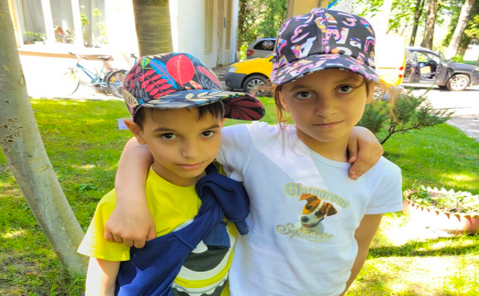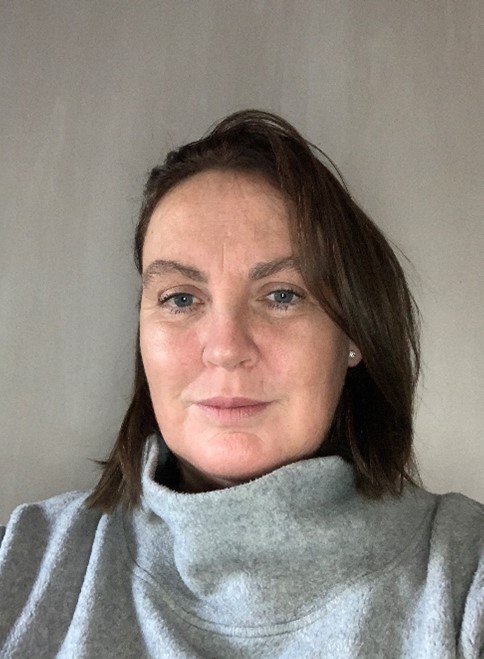International Day of Families is a United Nations-designated day that has been observed on May 15 each year ever since it was first celebrated in 1994.
Family means different things to different people - family means single parents doing the job of two to make a home.
To some, family means living with grandparents too. To others, family is the aunt or uncle who has stepped up to fill in for parents.
To some, family means two moms or two dads growing a family together.
Family can mean being with people who understand and accept you without condition, who help you when you struggle and be there for you in trying times.
There are many reasons why a family who is close at heart can become separated by distance. It may be due to the military, education, work and whatever the situation, it can make life difficult, whether it's grandparents being away from their grandchildren or even parents with kids going away to college.
-2.png?width=1000&height=500&name=Fashion%20(9)-2.png)
On International Day of Families let us think about all those who are separated from their families, especially those families displaced by war, in Ukraine, Syria, and Sudan to name a few.
The United Nations estimates that two-thirds of Ukraine's children have had to leave their homes since Russia invaded the country.
Olena aged 11 tries to understand her situation when she describes her shelter as “A safe place, but it's not home” Olena (right), 11, and her little brother Zhenia, 9 have not heard from their mother since the beginning of the war.

The children sleep together in large dormitories, converted from classrooms in the school, with two rows of beds.
There's a comfortable bomb shelter in the basement when the air raid sirens go off, daily lessons for the children, a doctor on hand, and even tae kwon do lessons.
However, there is just one thing Olena is missing, "I want to go home," she says, her face crumpling. "I want to hug my mother and tell her I love her."
Growing up is, in a word, scary. The world around us is so complex and remarkable, which makes it quite difficult to understand. That’s where family comes in.
Family creates the building blocks the child needs to go out and face the world. As a child is forming their own sense of self, the attitudes and values of the parents will influence the child.
For example, the first relationships we form with our family sets the standards we seek when forming new relationships.
If family members treat their child with respect, offer good communication, and act positively, then the child will also seek these qualities out in their other relationships.
Spending time with family has also been shown to make the child more sociable, leading to more relationships and more happiness in the future.
Family is also beneficial for the child’s self-confidence. Growing up in a stable, unified household gives the child the ability to go out and face the world without the worry that they won’t have a support system to back them up.
-2.png?width=1000&height=500&name=Fashion%20(10)-2.png)
Not only do these family qualities influence their child’s self-confidence, but they have also been shown to create better communication skills.
Parents and guardians hold a great influence on their child’s education. Parents can help prepare their children for school in early childhood, leading to more success in the classroom.
Additionally, parents can help make sure their child stays on the right path by ensuring they provide a positive and empathic environment.
All in all, having a child grow up in a family environment leads to them seeking out better relationships, having better communication and social skills, being better prepared for school, and helping them get ready to experience success in their lives.
Children are filled with wonder. Having never experienced the world before, they look at everything through rose-tinted glasses.
Having such an outlook on life can rub off on other members of the family, causing them to see things in a new way and enjoy life in a way they have not felt before.
Children can also be one of life’s greatest teachers. This can be done indirectly, such as having to research to answer the endless questions of why the sky is blue or how fish can breathe underwater or why we cannot all love each other and be one big family.
May this world be our gigantic family bonded with peace and happiness.
About the Author
Denise Baker is an Early Years tutor at Portobello Institute. She holds a Master's in Early Years education and a second Master's in Public Health. She is also a Community Health Development Worker at Travellers of north cork Ltd. ( TNC) and has over 15 years of experience working in the early years sector, including her role as National Treasurer of OMEP Ireland and she assisted with the inclusion of Traveller culture in the audit of Aistear in conjunction with NCCA. Read her full profile here.

Get in Contact
At Portobello Institute, we help you to follow your passion and fulfil your potential to achieve the career you want.
Visit our Early Years & Montessori Department here.
If you are interested in any of our early years and Montessori courses or have any questions you can book a consultation call with our expert advisor Jennifer Matteazzi here, email jennifer.matteazzi@portobelloinstitute.com or call 01 892 0031.
Read More: Understanding Anti-Racism Day: The Racism in Education and its Impact on Children



-2.png?width=1200&name=Fashion%20(11)-2.png)

